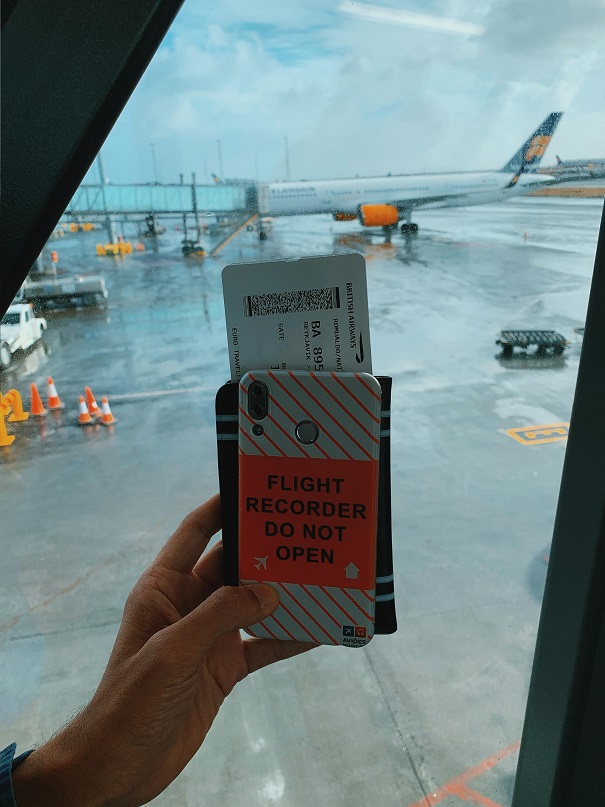Flight booking has evolved from a tedious task into a streamlined experience, thanks to technological advancements and user-friendly platforms. Whether you’re booking your first trip or a seasoned traveler looking for the best deal, understanding the key elements of flight booking can make the process smoother and save you time and money. In this article, we’ll explore flight booking tips, trends, and tools to help you navigate this essential part of travel planning.

1. When to Book Your Flight
Timing is one of the most crucial factors in flight booking. Prices fluctuate depending on various factors such as demand, seasonality, and how far in advance you book. Here are some key tips to maximize your savings:
Book Early for Peak Travel Times
- Holiday Seasons: Flights around holidays like Christmas, New Year’s, and Thanksgiving tend to sell out quickly. Booking at least three to six months in advance can help secure a lower price.
- Summer Vacations: The earlier, the better. Booking during the late winter or early spring for summer trips often leads to more competitive pricing.
Look for Deals on Off-Peak Days
- Midweek Flights: Tuesdays and Wednesdays often have lower fares because they are less popular travel days.
- Off-Season Travel: Booking flights in off-season months (such as September and October for European destinations) can lead to significant savings.
The “Golden Window” for Booking
A common rule of thumb is to book domestic flights between 1-3 months in advance and international flights between 4-6 months in advance. According to industry studies, this period is often when airlines release their lowest fares.
2. Flight Comparison Tools and Apps
Modern flight comparison platforms allow you to scan multiple airlines at once to find the best deals. Some of the most popular tools include:
Google Flights
Google Flights is a powerful tool with a simple interface. It allows you to filter by various factors such as price, airline, number of stops, and duration. The price graph tool shows how fares change over time, which is helpful for flexible travelers.
Skyscanner
Skyscanner is known for finding budget-friendly flights. It aggregates fares from numerous airlines and travel agencies, offering flexible search options for those who are undecided on their travel dates or destination.
Hopper
Hopper predicts the best time to book flights by analyzing data on millions of past flights. It notifies users when prices drop and advises them on whether to wait or book now.
Kayak
Kayak offers a comprehensive search engine for flights, hotels, and car rentals. It allows you to set alerts for specific routes, showing you price trends and sending notifications when prices drop.
3. Types of Flight Fares: Choosing the Right Ticket
When booking a flight, you’ll encounter different types of fares, each with its own rules and flexibility. Here are the most common fare types:
Basic Economy
The cheapest fare option on most airlines, basic economy is ideal for travelers who don’t need flexibility. However, it comes with restrictions like no seat selection, limited or no carry-on luggage, and no refund or change options.
Standard Economy
This is the next level up and offers more flexibility. You’ll often get the option to choose your seat and bring a carry-on bag. Some airlines may allow you to change your ticket for a fee.
Premium Economy
A step above standard economy, premium economy offers more legroom, better meal options, and sometimes priority boarding. The price is higher, but the additional comfort can make a long flight more enjoyable.
Business Class and First Class
Business and first-class fares offer the highest level of luxury, including wider seats, gourmet meals, and top-notch customer service. For long-haul flights or business travelers, these options can be worth the extra cost.
4. Understanding Airline Alliances
Airline alliances, such as Star Alliance, SkyTeam, and Oneworld, allow frequent travelers to enjoy greater benefits. By booking flights with airlines within the same alliance, you can earn and redeem points more easily, access shared airport lounges, and benefit from more flight options in case of delays or cancellations.
5. How to Avoid Hidden Fees
Low-cost airlines often advertise very low fares, but they may charge extra for everything from baggage to seat selection. Here’s how to avoid unpleasant surprises:
- Check Baggage Fees: Some airlines charge for both checked and carry-on luggage. Make sure to check the airline’s baggage policy before booking.
- Seat Selection: If you want to sit with family or friends, you might need to pay extra to choose your seat. Some airlines assign seats at random unless you pay a fee.
- In-Flight Meals: Many low-cost carriers charge for meals, snacks, and drinks. If you’re flying with one of these airlines, consider packing your own food for the trip.
6. Trends in Flight Booking
Flight booking trends are constantly evolving. In recent years, the rise of artificial intelligence, changing customer demands, and the COVID-19 pandemic have shifted the landscape. Here are some current trends:
Flexible Booking Policies
In response to the pandemic, many airlines now offer more flexible booking options, such as free changes or cancellations within a certain window. Be sure to review these policies carefully before booking.
Sustainable Travel
More travelers are looking to reduce their carbon footprint by choosing airlines with sustainable practices. Some booking platforms now display the most eco-friendly flight options, considering factors like fuel efficiency and route optimization.
Increased Use of Mobile Apps
More people are using mobile apps for flight booking and check-in. Many airlines offer mobile boarding passes and real-time notifications about flight status, delays, and gate changes.
7. Final Tips for Smooth Flight Booking
- Set Fare Alerts: Use tools like Google Flights or Kayak to set alerts for price changes. This can help you book when fares are at their lowest.
- Use Incognito Mode: Some travelers claim that prices increase when they repeatedly search for the same flight. To avoid this, try booking in an incognito browser window.
- Check for Discounts: Don’t forget to check for student, military, or senior discounts, as many airlines offer special fares for certain groups.
Conclusion
Flight booking doesn’t have to be a stressful process. By planning ahead, using the right tools, and being aware of the different types of fares and fees, you can secure the best deals and enjoy a hassle-free journey. Whether you’re flying domestically or internationally, staying informed and flexible will help ensure that your next trip starts off on the right foot. Happy travels!






Leave a Reply
You must be logged in to post a comment.